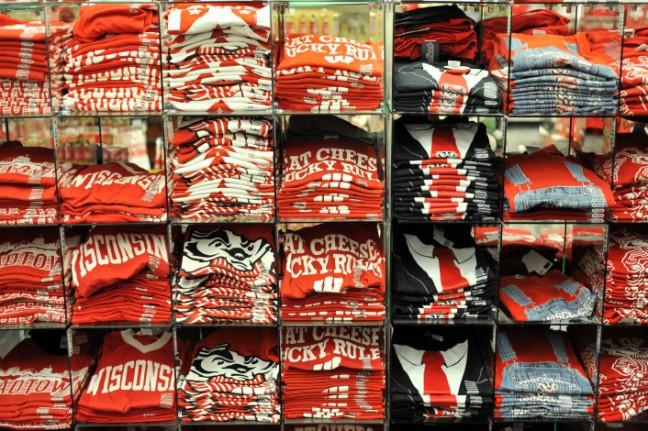A year and a half ago, an eight-story building in Bangladesh, housing several garment and apparel factories, crashed down around 3,500 workers, killing about a third. While this event shined a spotlight on the horrific conditions experienced by garment industry laborers, who supply much of the Western world, action on campus to put a complete end to Bangladesh-Bucky relations has completely stalled.
The members of the Student Labor Action Coalition, a subgroup of the nationally-based United Students Against Sweatshops, have been trying to set up a meeting with the chancellor to discuss the cutting of the University of Wisconsin’s contract with Jansport. Jansport’s parent company, VF Corporation, is refusing to sign the accord that all licensees of UW are required to sign if they have workers in Bangladesh, which they do. That accord – the Bangladesh Accord on Fire and Building Safety Accord – is the document needed for that company to keep their factories standardized and safe for their workers.
Student group pressures chancellor to terminate Jansport partnership
By not signing this accord, the workers in Bangladesh making UW apparel that have the Jansport logo on are not being treated appropriately. The workers do not get paid a livable wage nor do they work in standardized conditions; they work in “death trap” conditions where many of the workers die. As mentioned above, in April 2013, a factory in the capital of Bangladesh collapsed and killed more than 1,100 workers and injured 2,500 workers.
Factories like these, where underpaid workers are making UW apparel, are violating building and safety codes. Workers at the factories literally risk their lives every day just to go to work, and they get paid about $50 a month, an amount far below a livable wage.
These heartbreaking situations exist all over the world. Put yourself in their shoes – how would you feel if you got paid $50 a month to work between 14 and 16 hour days, while constantly having to worry the factory would crash around you or burn to the ground? If all consumers were aware of the workers’ toil, they would certainly feel guilty for furthering these unsafe conditions.
A few weeks ago, the members of SLAC were fortunate to Skype with Kalpona Akter, the founder and executive director of the Bangladesh Centre for Worker Solidarity. Kalpona is working tirelessly to make these factories in Bangladesh standardized, and that workers get paid the wage that they deserve, but she can’t do it alone. Her voice, as well as her organization’s, is only so loud in Bangladesh, and that is why we need to add to their voice. We need to let it be known that this is a major problem in Bangladesh, as well as other countries across the world. Chancellor Rebecca Blank needs to cut the contract with Jansport, so UW apparel is not tainted by the sweat of the underpaid, overworked laborers.
American-made clothes are so rare now that more than 90 percent of clothes and shoes that Americans wear are made elsewhere. Even though it is cheaper for clothes to be made in other countries, the workers that make our clothes should be treated fairly and appropriately. Americans should not just ship jobs abroad because it is cheaper to produce the products abroad – shouldn’t we want these products made in America? Or at least in factories that have standardized and safe conditions for their workers?
No matter where you work – whether it be a developed or developing country – standards should be the same, and that I why I participate in SLAC, to stand up for the workers in Bangladesh, as well as other laborers in different countries that work in these “death trap” conditions. Call Blank’s office, telling her to cut the contract with Jansportl; send her a letter or an email; make an appointment with her. We need to let her know that she needs to meet with the members of SLAC to discuss this issue further.
Autumn Linsmeier ([email protected]) is a junior majoring in political science.














